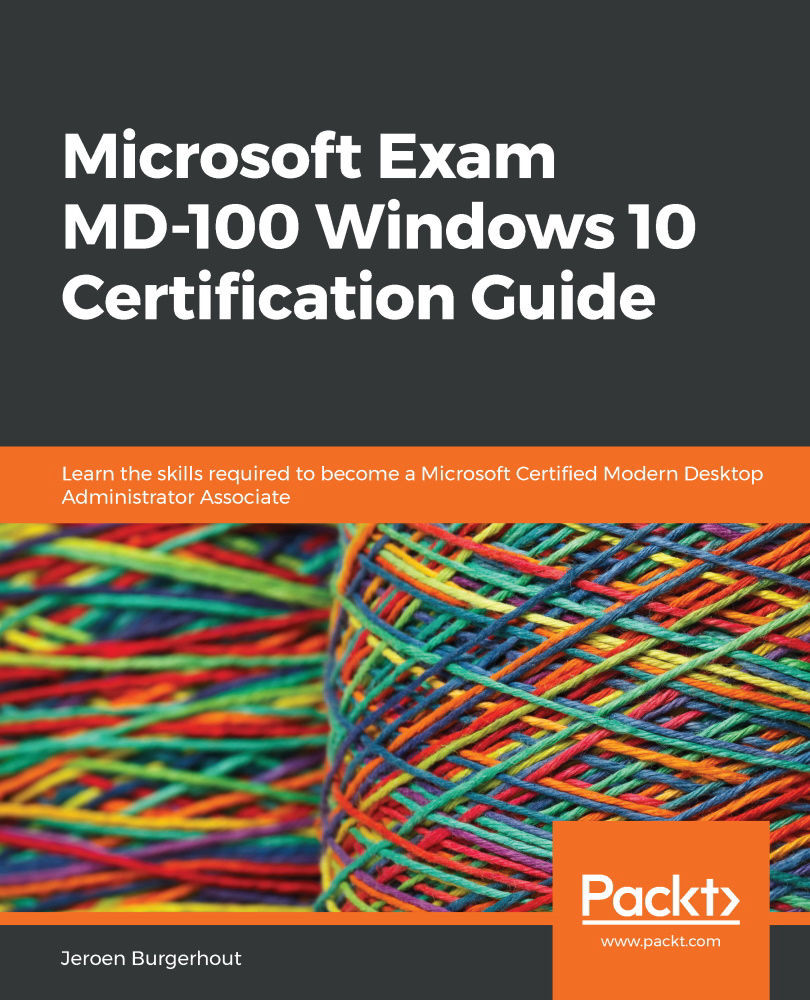Overview of this book
Microsoft Exam MD-100 Windows 10 Certification Guide offers complete, up-to-date coverage of the MD-100 exam, helping you take the exam with confidence, fully equipped to pass on the first attempt.
Complete with a clear, succinct explanation of key concepts, self-assessment questions, tips, and mock exams with detailed answers, this MD-100 study guide covers different facets of upgrading and deploying Windows 10. You’ll learn how to manage devices and data, configure connectivity, troubleshoot OS and app problems, and secure and maintain Windows 10 with updates and recovery. You’ll also explore different Windows 10 editions and learn how to choose the best fit for your organization. This book will guide you in installing and configuring Windows 10 using different approaches. As you advance, you’ll get to grips with managing local users and groups in Windows 10 and learn how to establish connections via different networks, such as a LAN and WLAN/Wi-Fi.
By the end of this book, you'll have covered everything you need to pass the MD-100 certification exam and become a Microsoft 365 Certified: Modern Desktop Administrator Associate.



 Free Chapter
Free Chapter
